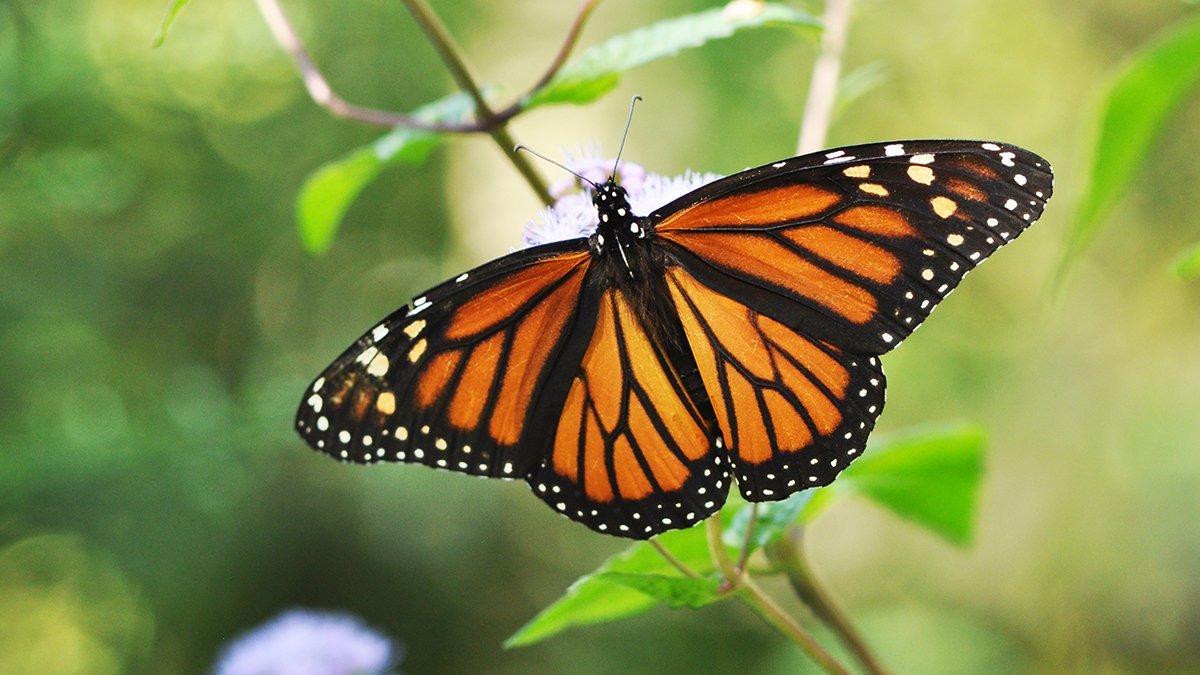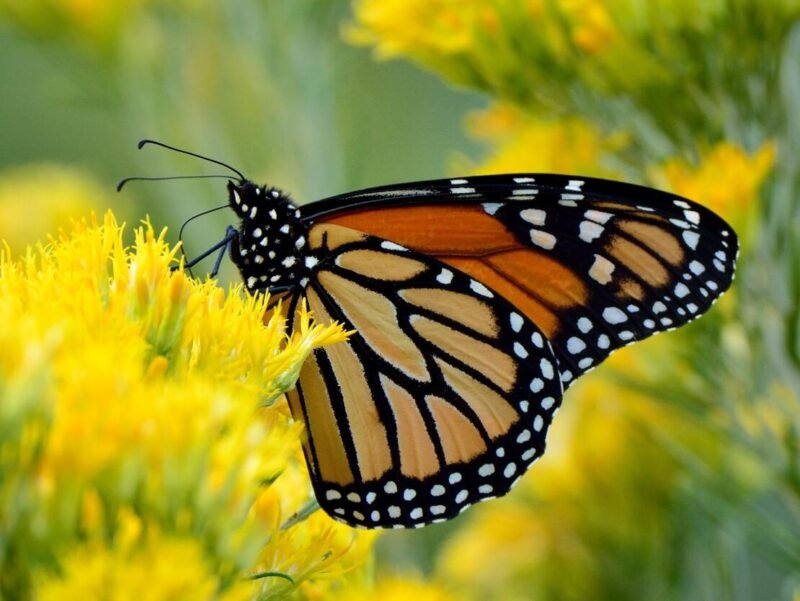Monarch butterflies in Northwest Florida!

A naturally occurring parasite is now threatening these monarch butterflies. It’s a parasite called OE (Ophryocystis elektroscirrha), and it thrives on a plant that, ironically, is mandatory for monarchs’ survival. The plant is milkweed. Pam Murfey, the Panhandle Butterfly House’s Executive Director, knows a lot about the milkweed plant and the microscopic OE spores that live on some of the monarchs in here.
I was heartbroken when I read this article about northern Florida monarchs being afflicted by this devastating and fatal microorganism. It appears to be a vicious cycle, because growing the beneficial and life-dependent milkweed plant only exasperates the problem.
“People think that as long as you’re buying native milkweed in Florida, you’re solving this OE problem,” he said. “It’s an assumption or an extrapolation of some evidence from other places in the country, anywhere else in the country, native milkweed is the answer. Native milkweed will die back in the winter. All of the OE spores that were on those plants then disappear, and then the plant comes back in the spring, fresh from the ground (with) new leaves. In Florida, almost every monarch that’s flying around is infected. And every monarch that lands on any milkweed in Florida, any milkweed, is going to drop its OE payload on that milkweed.”

“As soon as the next leaf sheds, the next monarch that flies in your yard will drop its spores on that plant, and therefore your plant will then become an infectious, contaminated spot again,” he said. “Just plant native milkweed and that will fix the problem. But it doesn’t. In Florida, there are just already too many highly-infected monarchs flying around. It doesn’t really matter if you have native milkweed or nonnative milkweed, because those infected butterflies flying around are going to use your milkweed, no matter what it is, to make more infected butterflies. The only way to deal with this is to not have milkweed — period.”
Dr. Davis says that there is no shortage of monarchs in Florida, and they have plenty of milkweed to use, so there’s no need to have it on your property. His research shows that 50% of monarchs in Northwest Florida are infected.
“All milkweed in Florida, I don’t care what type of species it is, it is now covered in OE spores. My personal recommendation to people in Florida is to just get rid of your milkweed. That’s a hard thing for people to digest. Removing your own backyard milkweed is not going to solve all of Florida’s problems, but it is going to solve the problem in your backyard.”
Please read the article in its entirety for more information

Leave a Reply
You must be logged in to post a comment.